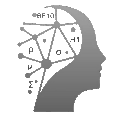
Alchemists sought the philosopher’s stone, a legendary substance that could turn ordinary metals into gold.
Alchemists often used symbols and coded language to hide their findings.
Alchemists conducted systematic experiments to discover new chemical processes. In Italy we see this passage in Paracelsus.
In addition to transmutation of substances, alchemy also aspired to spiritual elevation.
Alchemists often kept their methods and results secret, sharing them only with a few initiates.
Alchemy was a respected discipline during the Middle Ages, although often misunderstood.
Statistics, or data science, turns common data into gold: trends where turnover hides, disproven assumptions where Voldemort cost lurks.
Statisticians use a programming language, R, to create their transmutations and discoveries. The half-bloods use Python.
Statisticians conduct systematic, validated experiments to discover statistical associations. There is an extensive spell book depending on the type of data to be interrogated.
In addition to analyzing data and creating models, statisticians help in the dissemination of critical-quantitative thinking.
Statisticians often make open source code for their methods and results, or share them only with the company, organization they work with/for.
Statistics is a respected discipline in the 20th century, although not exactly accessible.
Statics, through the spell of clarity, show visions (graphs, tables) of transmuted data.
However, even statisticians have their own chamber of secrets.
If you also want the philosopher’s stone for your business, the Sorting Hat will say whether Enterprise Statistics is right for you or will refer you elsewhere.
